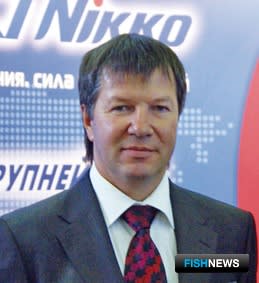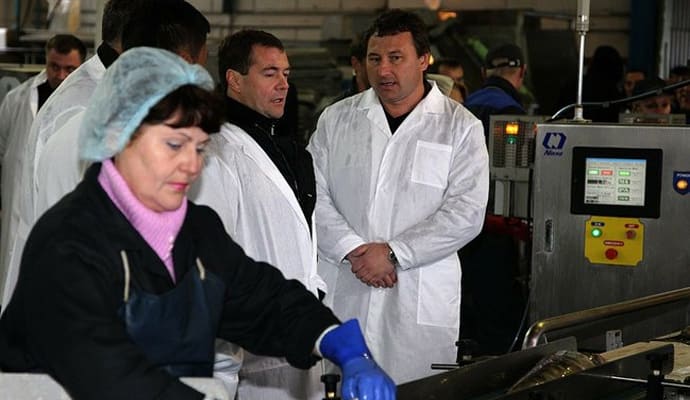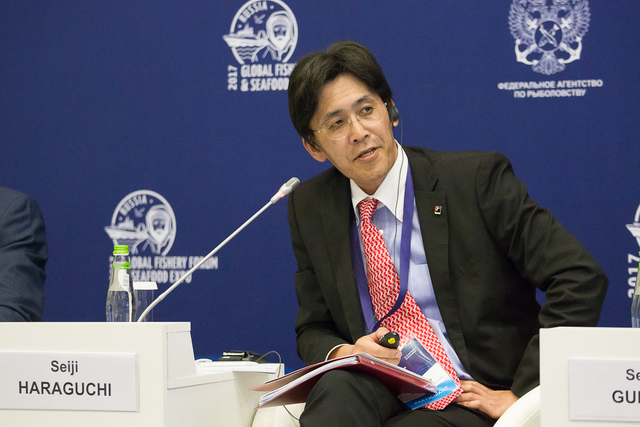2013年12月26日
韓国発 中央日報
「漁業権めぐり銃撃戦、金正恩が送った兵士が張成沢に惨敗」
張成沢処刑前後の北朝鮮の動き。
「金正恩(キム・ジョンウン)の指示で張成沢(チャン・ソンテク)が管轄している漁業基地に軍人が出動した。軍人は基地の管轄権を渡すよう張成沢側に要求した。だが、張成沢の部下は張成沢の許可がなくては絶対に渡せないと突っぱねた。この過程で双方の間で銃撃戦まで起きた。だが、北朝鮮軍部の立場では交戦の結果はみじめだった。管轄権を接収しに行った兵士らはやせており、まともに訓練も受けていない状態だった。張成沢の部下の相手にならなかった。一言で敗退した。この事実の報告を受けた金正恩は張成沢が将来自身の統治権を脅かしかねないと感じた。金正恩はさらに多くの兵士を送り、ついに張成沢を屈服させた。そして張成沢の核心側近2人を公開処刑した。張成沢処刑事件の発端はこのように始まった」。
米国の有力紙ニューヨークタイムズが24日付1面に掲載した記事だ。ニューヨークタイムズはこの記事で、「金正恩第1書記と張成沢国防副委員長の双方が今年の秋に1度武力衝突を行った」と伝えた。新聞は最初の衝突が9月末から10月初めに発生し、記事の取材源に対しては「名前を明らかにすることはできない複数の韓国・米国政府当局者」とした。ところどころに南在俊(ナム・ジェジュン)国家情報院長が23日に国会情報委員会に出席してした発言も紹介した。
公開処刑された張成沢の腹心2人(朝鮮労働党行政部李竜河第1部部長と張秀吉副部長)について、「小銃でなく対空機関銃で処刑された」と指摘した。
ニューヨークタイムズの記事によると、金正恩は2年前に政権を取った後、張成沢に外貨稼ぎの主所得源である石炭とワタリガニ、貝などの管轄権を渡した。それまでこの管轄権は軍部が持っていた。張成沢の勢力はますます大きくなり、軍部の不満もたまっていった。ニューヨークタイムズは、「ある日軍部隊へ視察に行った金正恩は兵士たちの栄養状態が悪いことに衝撃を受けた。金正恩は軍の腹心に説得され張成沢に渡した石炭とワタリガニなどの管轄権を再び軍に戻すことを決心した」と伝えた。その結果が双方の銃撃戦に発展し、張成沢処刑につながったという説明だ。
張成沢事件と関連した同紙の報道は先週のラジオ・フリー・アジア(RFA)の報道とも一脈通じる。金正恩の命令を受けた軍人150人が張成沢の部下40人と漁業基地の管轄権をめぐり銃撃戦を行い、これが「最高司令官命令不服罪」に該当し張成沢が処刑されたというものだった。RFAは「当時張成沢側の人たちがどれほど訓練がしっかりできていたのか、防御隊の軍人150人を簡単に制圧し2人を即死させた」と伝えた。この事件は崔竜海(チェ・ヨンヘ)軍総政治局長を通じ金正恩に報告され、激怒した金正恩が国家安全保衛部と軍保衛司令部を使い張成沢に対する内査に入ったとRFAは明らかにした。
実際に南院長は国会情報委員会で「張成沢の粛清は内部の権力闘争過程で発生したのではない。ただし権力層の面従腹背による政策乱脈が深刻化し内部亀裂が加速化する素地はある」と説明した。

ニューヨークタイムズ紙
Korea Execution Is Tied to Clash Over Businesses
By CHOE SANG-HUN and DAVID E. SANGER : December 23, 2013
SEOUL, South Korea — The execution of the uncle of Kim Jong-un, North Korea’s leader, had its roots in a firefight between forces loyal to Mr. Kim and those supporting the man who was supposed to be his regent, according to accounts that are being pieced together by South Korean and American officials. The clash was over who would profit from North Korea’s most lucrative exports: coal,
clams and crabs.
North Korean military forces were deployed to retake control of one of the sources of those exports,
the rich crab and clam fishing grounds that Jang Song-thaek, the uncle of the country’s untested, 30-year-old leader, had seized from the military. In the battle for
control of the fishing grounds, the emaciated, poorly trained North Korean forces “were beaten — very badly — by Uncle Jang’s loyalists,” according to one official.
The rout of his forces appears to have been the final straw for Mr. Kim, who saw his 67-year-old uncle as a threat to his authority over the military and, just as important, to his own family’s dwindling sources of revenue. Eventually, at Mr. Kim’s order, the North Korean military came back with a larger force and prevailed. Soon, Mr. Jang’s two top lieutenants were executed.
The two men died in front of a firing squad. But instead of rifles, the squad used antiaircraft machine guns, a form of execution that according to South Korean intelligence officials and news media was similar to the one used against some North Korean artists in August. Days later, Mr. Jang himself was publicly denounced, tried and executed, by more traditional means.
Given the opaqueness of North Korea’s inner circle, many details of the struggle between Mr. Kim and his uncle remain murky. But what is known suggests that while Mr. Kim has consolidated control and eliminated a potential rival, it has been at a huge cost: The open warfare between the two factions has revealed a huge fracture inside the country’s elite over who pockets the foreign currency — mostly Chinese renminbi — the country earns from the few nonnuclear exports its trading partners desire.
Only a few months ago Mr. Jang was believed to be the second most powerful man in North Korea. In fact, American intelligence agencies had reported to the White House and the State Department in late 2011 that he could well be running the country behind the scenes — and might edge out his inexperienced nephew for control. In part that was based on his deep relationship with top officials in China, as well as his extensive business connections there.
His highly unusual public humiliation and execution on Dec. 12 set off speculation about the possibility of a power struggle within the secretive government. But in recent days a more complex, nuanced story has emerged.
During a closed-door meeting on Monday of the South Korean National Assembly’s intelligence committee, Nam Jae-joon, the director of the National Intelligence Service, disputed the North’s assertion that Mr. Jang had tried to usurp his nephew’s power. Rather, he said, Mr. Jang and his associates had provoked the enmity of rivals within the North’s elite by dominating lucrative business deals, starting with the coal badly needed by China, the North’s main trading partner.
“There had been friction building up among the agencies of power in North Korea over privileges and over the abuse of power by Jang Song-thaek and his associates,” Mr. Nam was quoted as saying. Mr. Nam’s comments were relayed to the news media by Jeong Cheong-rae and Cho Won-jin, two lawmakers designated as spokesmen for the parliamentary committee.
In interviews, officials have said that the friction described in general terms to the South Korean Parliament played out in a violent confrontation in late September or early October, just north of the western sea border between the Koreas.
There, the North harvests one of its major exports: crabs and clams, delicacies that are also highly valued by the Chinese. For years the profits from those fishing grounds, along with the output from munitions factories and trading companies, went directly to the North Korean military, helping it feed its troops, and enabling its top officers to send cash gifts to the Kim family.
South Korea was a major market for the North’s mushrooms,
clams, crabs, abalones and sea cucumbers until the South cut off trade with the North after the sinking of a South Korean Navy ship in 2010, forcing the North Korean military to rely on the Chinese market.
But when Mr. Kim succeeded his father two years ago, he took away some of the military’s fishing and trading rights and handed them to his cabinet, which he designated as the main agency to revive the economy. Mr. Jang was believed to have been a leading proponent of curtailing the military’s economic power.
Mr. Jang appears to have consolidated many of those trading rights under his own control — meaning that profits from the coal, crabs and clams went into his accounts, or those of state institutions under his control, including the administrative department of the ruling Workers’ Party of Korea, which he headed.
But this fall, the long-brewing tensions that arrangement created broke into the open. Radio Free Asia, in a report last week that cited anonymous North Korean sources, reported that Mr. Kim saw North Korean soldiers malnourished during his recent visits to islands near the disputed western sea border. They say he ordered Mr. Jang to hand over the operation of nearby fishing grounds back to the military.
According to accounts put together by South Korean and American officials, Mr. Jang and his associates resisted. When a company of about 150 North Korean soldiers showed up at the farm, Mr. Jang’s loyalists refused to hand over the operation, insisting that Mr. Jang himself would have to approve. The confrontation escalated into a gun battle, and Radio Free Asia reports that two soldiers were killed and that the army backed off. Officials say the number of casualties is unknown, but they have received similar accounts.
It is hard to know exactly how large a role the episode played in Mr. Jang’s downfall — there is more money in coal than in seafood — but Mr. Kim was reportedly enraged when he heard of the clash. Mr. Nam said that by mid-November his agents were already reporting that Mr. Jang had been detained. The Dec. 12 verdict noted that Mr. Jang “instructed his stooges to sell coal and other precious underground resources at random.”
Mr. Nam said the fact that such behind-the-scenes tensions had spun so far out of control that Mr. Kim had to order his own uncle’s execution raised questions about the government’s internal unity.
“The fissure within the regime could accelerate if it further loses popular support,” the lawmakers quoted Mr. Nam as saying.
Mr. Jang was the husband of Kim Kyong-hui, the only sister of Mr. Kim’s father, the longtime leader Kim Jong-il. Mr. Nam told the committee Monday that Mr. Kim’s aunt had retained her position in the hierarchy, even while the purge of Mr. Jang’s other associates continued. But he denied news reports in South Korea and Japan that some of Mr. Jang’s associates were seeking political asylum in Seoul and Beijing.
Mr. Nam pointed to Vice Marshal Choe Ryong-hae, the top political officer in the North Korean People’s Army, and Kim Won-hong, the head of the North’s secret police and its intelligence chief, as the government’s new rising figures since Mr. Jang’s execution, the two lawmakers said.
2013年12月26日
韓国発 KBS WORLD Radio
[北朝鮮 水産部門の活性化で初会議]
北朝鮮の張成沢氏の処刑をきっかけに、その動向が注目されるなか、北朝鮮では2013年12月21日、水産部門の活性化を目指して、漁業で模範を示した貢献者などを集めた会議が初めて開かれたもようだ。
それによると、”人民軍水産部門熱誠者会議”と名づけた会合には、崔竜海(チェ・リョンヘ)朝鮮人民軍総政治局長や張正男(チャン・ジョンナム)人民武力部長など軍の関係者や漁業で模範を示した労働者らが出席し、金正恩(キム・ジョンウン)第1書記が掲げる水産業活性化に向けた決意を確認した。
今回の会議は、張成沢(チャン・ソンテク)氏が、漁業に関わる利権事業をめぐる軍部との対立で粛清されたとの見方がある中で開かれて注目を集めたが、張成沢氏についての言及はなかった。
2013年12月23日
韓国発
[金正恩が軍傘下の水産事業所を視察]
北朝鮮軍には時ならぬ”紅葉”ブームが起きている。
軍部隊傘下で働く”8月25日水産事業所”は1年で1,000トンの魚しか漁獲できなかったが、今年2013年は、5月からの6カ月間に4,000トンを生産する成果を上げた。
これは金正恩が5月に”紅葉号”と名付けた新しい漁船を与えたことが大きな役割をしたという主張を国営メディアが大々的に報じている。
労働新聞は”紅葉”と関連した論説を全面にわたり掲載し金正恩のおかげで水産事業所が魚を捕まえる成果を出したと主張した。
北朝鮮は12月21日に、平壌の軍部隊傘下で働く水産部門関係者を集め熱誠者会議も開催した。
2013年12月19日
韓国発 聯合ニュース
[金正恩が朝鮮人民軍へ漁船、魚探等を寄贈]
北朝鮮で張成沢(チャン・ソンテク)元国防副委員長が処刑された後、金正恩(キム・ジョンウン)第1書記が軍人と住民の気持ちをつかむための活動を活発化している。
朝鮮労働党機関紙の労働新聞は2013年12月19日、金第1書記が朝鮮人民軍のホ・チョルス所属部隊に漁船や魚群探知機、冷凍車などを贈ったと伝えた。
これは軍人の福利厚生を担う「後方事業」への関心を示すことが目的とみられる。
北朝鮮メディアは2013年12月16日にも、金第1書記が第313軍部隊の水産事業所を訪れ後方事業に強い関心を示したと報じた。
また、金第1書記は模範的な住民に感謝の言葉を積極的に伝えている。
労働新聞は、金第1書記が「党と首領への忠実さをもち、良いことをした労働者らに謝意を伝えた」と報じた。
今年は江原道の開墾事業や金日成総合大学の教育者住宅建設事業などの大型建設事業で模範的だった労働者や、重体の軍人の治療に当たった医療関係者らにも感謝の言葉が伝えられた。
韓国の専門家は「金第1書記は北朝鮮内部の動揺を収拾するため、しばらくは軍人と住民の生活に配慮する姿を見せようと努めるだろう」と話した。
2013年05月29日
北朝鮮発 朝鮮中央通信
[金正恩が第313軍部隊管下水産事業所を現地指導]
朝鮮労働党第1書記、共和国国防委員会第1委員長、朝鮮人民軍最高司令官の金正恩元帥は、朝鮮人民軍第313軍部隊管下"8月25日水産事業所"を現地で指導した。
金正恩最高司令官は、出迎にきた軍部隊の指揮官と水産事業所の幹部の手を取り、漁船に乗った。
最高司令官は、よい漁船をもって魚をたくさん獲って最前線の軍人たちに四季にわたって切らさず供給して朝鮮労働党が送った漁船が実効を現すようにしなければならないと述べた。
機関室の中にまで入った最高司令官は、機関室はどのように整っており、作業時に燃料の消費量はどれくらいか、馬力はいくらかについても具体的に尋ねた。
前の船室と中間の船室も見て回りながら船員の生活に不便がないようによく整えてやりなさいと言い聞かせ、漁船の廃熱を効果的に利用しているある水産基地の経験も聞かせながら、海で冷水に手を濡らす漁夫たちが暖かいところで休息できるようにしなければならないと述べた。
漁船1隻当たり毎年1,000トンは獲らなければならないとし、計画を遂行すれば必ず最高司令官に手紙を書きなさい、と語った。
人民軍で大豆栽培の熱風が巻き起こっているが、大豆栽培も漁獲もよく行って軍人たちに大豆と魚を絶対に切らさず供給しようと述べた。
最高司令官は、漁船の名を付けてほしいと申し上げる指揮官と水産事業所の幹部を眺めて秋の象徴である「紅葉」と付けようと述べた。
金正恩最高司令官は、1973年8月25日に同水産事業所を訪ねて綱領的な教えを与えた金正日総書記の現地指導標識碑と沿革紹介室を見て回った。
金正恩最高司令官は、水産事業所の漁具保管庫と冷凍室も見て回った。
最高司令官は、水産物の生産を増やすには漁獲の実績を上げるとともに浅海養殖を大々的に行ってワカメとコンブ、イガイなどを多く養殖しなければならないと述べた。
最高司令官は、自身が数日前に見て回った朝鮮人民軍第639軍部隊管下東海給養基地では給養活動をよく行い、漁労作業の科学化を実現して多くの魚を獲っているとし、この水産事業所でも彼らの仕事ぶりと経験を積極的に見習わなければならないと述べた。
金正恩最高司令官は水産事業所の幹部と従業員とともに記念写真を撮った。
2013年05月29日
共同通信
[金正恩が軍へ漁船4隻を寄贈]
朝鮮中央通信は2013年5月28日、北朝鮮の金正恩第1書記が朝鮮人民軍第313軍部隊傘下の”8月25日水産事業所”を現地指導したと伝えた。
日時や同事業所の場所は報じていない。
同通信によると、この事業所に同7日、金第1書記が魚群探知機など最新設備を備えた漁船4隻を贈った。金氏は「軍人がちゃんと食べてこそ訓練もきちんと行え、彼らへの要求も高めることができる」と発言。
漁船1隻当たり毎年1千トンは水揚げするよう指導した。
指導には金第1書記の特使として先週訪中した崔竜海軍総政治局長や、金格植総参謀長が同行した。





































